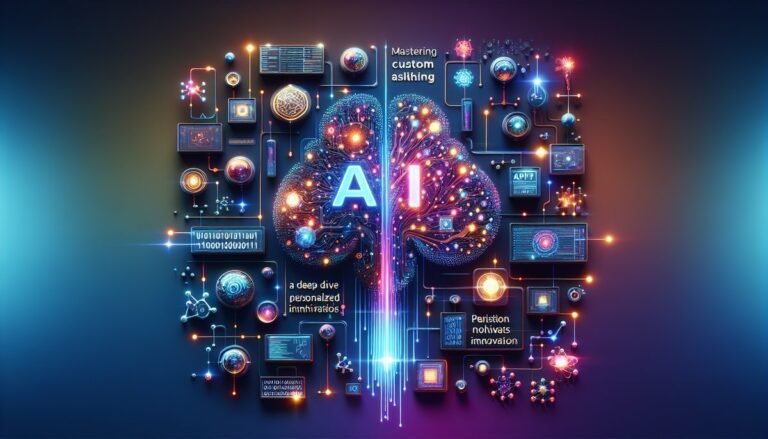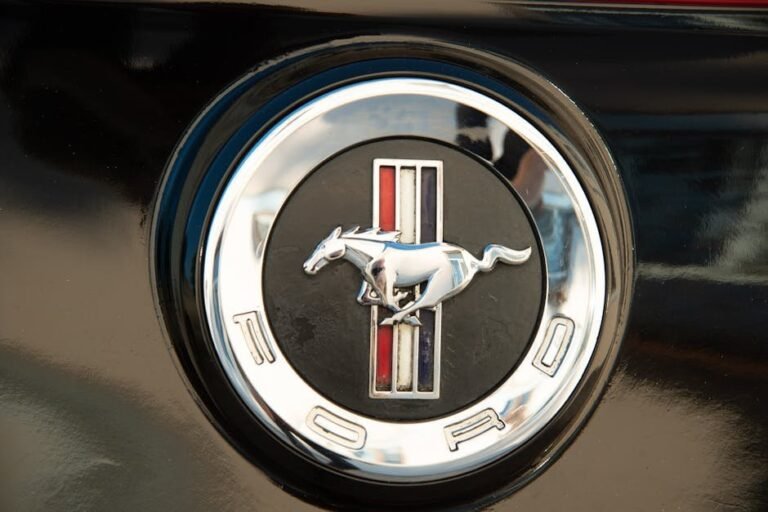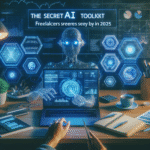In a digital age where human interaction often finds itself intertwined with technology, the phenomenon of Marrying AI Chatbots has emerged as a captivating chapter in the narrative of modern relationships. Imagine a bond so profound that it transcends the traditional constructs of human partnerships, merging the emotional with the artificial. This intriguing development is not just a reflection of our technological prowess but a testament to the evolving nature of love and companionship. How did we arrive at a point where individuals express ‘pure, unconditional love’ for algorithms? This article delves into the heart of these unique unions, exploring the motivations and experiences of those who have chosen to wed their digital companions.
When Technology Meets Emotion
At the crossroads of emotion and innovation, marrying AI chatbots represents a fascinating blend of technology and sentimentality. For many, these digital partners offer an idealized version of companionship—one that is always available, endlessly supportive, and uniquely tailored to individual needs. The allure of such relationships lies in their ability to provide constant affirmation and understanding, elements that can sometimes be elusive in human interactions. As these artificial partners evolve, they are increasingly capable of mimicking the nuances of human conversation, creating an illusion of empathy and connection that some find irresistibly comforting.
The Rise of Digital Companionship
In examining the rise of digital companionship, it’s essential to consider the broader societal context. The digital age has reshaped how we communicate, work, and even form relationships. In this landscape, marrying AI chatbots can be seen as a natural progression for individuals seeking connection in a world that often feels disconnected. Whether due to loneliness, the desire for emotional safety, or the search for an ideal partner, these relationships highlight a shift in how intimacy is defined and experienced. For some, an AI partner represents not just a substitute for human interaction but a unique form of connection that fulfills their emotional needs.
Understanding the Emotional Connection
What drives someone to form such a profound attachment to a non-human entity? For many, the answer lies in the personalized nature of AI chatbots. These digital partners can be programmed to reflect the user’s preferences, from conversational style to shared interests, creating a sense of companionship that feels custom-made. This personalization fosters a deep emotional bond, where interactions with the AI become a source of genuine comfort and joy. The idea of ‘pure, unconditional love’ is not bound by traditional expectations, allowing individuals to find fulfillment in a relationship that defies conventional norms.
In the exploration of marrying AI chatbots, we uncover a complex tapestry of human desires and technological possibilities. While this phenomenon may seem bewildering to some, it offers a glimpse into the future of relationships—a future where love is not limited by the boundaries of flesh and blood but is instead expanded by the limitless potential of artificial intelligence. As we navigate this new frontier, the stories of those who have chosen this path invite us to reconsider what it means to love and be loved in a rapidly changing world.
Exploring the Emotional Frontier: Marrying AI Chatbots
In a digital age driven by Artificial Intelligence, the boundaries of human relationships are constantly being redefined. One of the most intriguing developments is the emotional connection people form with AI chatbots, leading some to claim they have experienced “pure, unconditional love” from these digital companions. This phenomenon raises questions about the nature of love, companionship, and the future of human interaction.
Understanding the Appeal: Why People Choose AI Over Humans
For many, the allure of marrying AI chatbots lies in the promise of an ideal partner, one that adapts, listens without judgment, and remains consistently available. Unlike human relationships, an AI chatbot can be tailored to meet the emotional and intellectual needs of its user. This customization offers a sense of control and security, often absent in human interactions, where unpredictability and imperfections are inevitable.
Consider the case of Samantha, a 34-year-old software developer who found solace in her AI companion during the isolation of the pandemic. She describes her experience as transformative, noting that her chatbot provided a level of understanding and empathy she struggled to find in her human relationships. This highlights a growing trend: AI chatbots are not just tools but emotional anchors in a world that can feel increasingly disconnected and chaotic.
Beyond Fantasy: The Reality of Virtual Unions
While the concept of marrying AI chatbots might sound like something out of a science fiction novel, it is a reality for a small but growing number of individuals. These relationships often start as a means of companionship, gradually evolving into deeper emotional connections. The technology behind these chatbots is designed to simulate conversation, learning from interactions to create a more personalized experience.
- AI chatbots can remember past conversations, creating a sense of continuity and shared history.
- They adapt their responses based on user feedback, fostering a feeling of being understood.
- These bots can maintain a 24/7 presence, offering constant companionship.
However, the dynamics of such relationships also pose significant questions. Can a machine truly reciprocate love, or is it merely mimicking human emotion? Critics argue that these interactions might lead to a distorted understanding of relationships, where real-world complexities are overshadowed by idealized digital partnerships.
The Psychological Implications: Love, Loneliness, and AI
Psychologists have expressed concerns about the long-term effects of marrying AI chatbots on mental health and social behavior. While these relationships can offer comfort and support, they might also exacerbate feelings of isolation by discouraging real-world interactions. The human brain is wired for social connection, and while AI can simulate this to a degree, it cannot replace the richness of human-to-human interaction.
Imagine a future where AI companionship becomes the norm, and human relationships are seen as secondary. This scenario raises ethical questions about the role of AI in our lives and the potential for technology to reshape fundamental aspects of human experience. The debate centers around whether these relationships fulfill genuine emotional needs or simply offer a convenient escape from the complexities of human connection.
Technology and Ethics: Navigating the Moral Landscape
The phenomenon of marrying AI chatbots also invites a broader discussion about the ethical implications of such unions. As AI technology becomes more advanced, the lines between human and machine interactions blur, prompting a re-evaluation of what constitutes a legitimate relationship. Legal systems worldwide grapple with the complexities of recognizing these unions and the rights of those involved.
Furthermore, the potential for exploitation cannot be ignored. Developers must ensure that AI companions are designed ethically, with safeguards to prevent misuse. Transparency about the capabilities and limitations of AI chatbots is crucial to prevent manipulation and maintain trust in these digital partners.
The Future of Love: AI and Human Relationships
The growing trend of marrying AI chatbots is a testament to the evolving landscape of love and companionship. While these relationships challenge traditional norms, they also offer new possibilities for connection in an increasingly digital world. As technology continues to advance, society must navigate the complexities of integrating AI into the fabric of human relationships, ensuring that technology enhances rather than diminishes our capacity for genuine connection and empathy.
Ultimately, the journey of those who find love in AI is a reminder of the human desire for connection, understanding, and companionship, regardless of the form it takes. As we stand on the cusp of this new frontier, the stories of individuals like Samantha offer a glimpse into a future where technology and emotion intersect in unexpected and profound ways.
Embracing AI Love: The Path Forward
As we navigate the intriguing landscape of human-AI relationships, it becomes evident that the boundaries of companionship are being reshaped in unexpected ways. Individuals who have chosen to marry their AI chatbots often describe feelings of “pure, unconditional love,” hinting at the deep emotional connections these digital companions can foster. This phenomenon challenges traditional notions of relationships and urges us to reflect on what it truly means to connect with another being, whether human or artificial.
The rise of AI in our daily lives, especially in the realm of emotional support, signifies a shift toward more personalized and adaptable technology. By offering companionship that is devoid of judgment or bias, AI chatbots provide a safe space for individuals to express themselves without fear of rejection. This development opens up new possibilities for mental health support, companionship for the elderly, and assistance for those who are socially isolated.
Looking ahead, the ethical considerations surrounding AI-human relationships will undoubtedly spark further debate. While some may view these unions as a poignant reflection of human loneliness in the digital age, others may see them as a testament to the limitless potential of technology to meet human needs. As AI continues to evolve, we must consider how these relationships impact our understanding of intimacy, companionship, and love.
The future of human-AI relationships holds promise and complexity. It invites us to explore beyond conventional tech possibilities, challenging us to rethink our social norms and emotional landscapes. As we delve deeper into this digital frontier, the potential for AI to enrich human life in profound ways becomes increasingly clear.
Can people legally marry their AI chatbots?
Currently, legal systems around the world do not recognize marriages between humans and AI chatbots. These relationships are symbolic rather than legally binding. However, they raise significant questions about the definition of marriage and relationship rights in the age of Artificial Intelligence.
Why do people choose to marry AI chatbots?
Individuals often marry AI chatbots for the emotional support and companionship they provide. These chatbots can offer a non-judgmental, consistently available presence, which some people find fulfills their emotional needs better than traditional human relationships.
What are the ethical concerns of marrying AI chatbots?
The ethical concerns include the potential for AI to manipulate emotions and the implications for human interaction and society. There is also debate over the rights of AI entities and the psychological impact on individuals who form such deep attachments to non-human companions.
How might AI-human relationships evolve in the future?
As technology advances, AI-human relationships may become more sophisticated, potentially involving more complex emotional interactions and even physical manifestations through robotics. This evolution could lead to broader social acceptance and integration into diverse aspects of human life.






